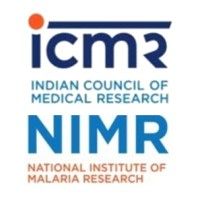预约演示
更新于:2025-08-14
Halofuginone Hydrobromide
常山酮
更新于:2025-08-14
概要
基本信息
最高研发阶段临床前 |
首次获批日期- |
最高研发阶段(中国)临床前 |
特殊审评孤儿药 (美国) |
登录后查看时间轴
结构/序列
分子式C16H18Br2ClN3O3 |
InChIKeySJUWEPZBTXEUMU-AJYMSAGVSA-N |
CAS号64924-67-0 |
关联
5
项与 常山酮 相关的临床试验NCT02525302
HT-100 Long-term Safety and Pharmacodynamics in Patients With DMD Who Have Completed Protocols HALO-DMD-01 and HALO-DMD-02
This study, HALO-DMD-03, is a follow-on study to HALO-DMD-01 and HALO-DMD-02, and allows continued open-label access to HT-100 for subjects who have completed these studies. HALO-DMD-03 will provide safety and strength and function data on continuous long-term dosing. Data from this study will be used to inform the safety, tolerability, and dose selection for a future trial of HT-100 in boys with Duchenne Muscular Dystrophy (DMD).
开始日期2015-05-01 |
申办/合作机构 |
NCT01978366
An Open Label Extension Study of HT-100 in Patients With Duchenne Muscular Dystrophy Who Have Completed Protocol HALO-DMD-01
This study is designed to provide 6-months continuous dosing with the study medication, called HT-100, on participants who successfully completed the predecessor study (HALO-DMD-01). The main purpose of this study is to assess chronic safety, tolerability, pharmacodynamic activity (testing the drug's effect on DMD) and population pharmacokinetics (measuring how much drug is in the bloodstream) in participants with a broad spectrum of Duchenne muscular dystrophy (DMD).
开始日期2013-10-01 |
NCT01847573
A Phase 1b Open Label, Single and Multiple Ascending Dose Study to Evaluate the Safety, Tolerability, and Pharmacokinetics of HT-100 in Patients With Duchenne Muscular Dystrophy
The main purpose of this study is to test the safety and tolerability of different, increasing doses of an experimental medication called HT-100 in boys and young men with Duchenne muscular dystrophy (DMD). The study medication, HT-100, is a medicine that may help promote healthy muscle regeneration, diminish inflammation and the resulting damage to muscle, and decrease the scar tissue that forms in the muscles of children with DMD. In this study, pharmacokinetic sampling, or measurements of the amount of HT-100 in the bloodstream will also be taken.
开始日期2013-05-01 |
100 项与 常山酮 相关的临床结果
登录后查看更多信息
100 项与 常山酮 相关的转化医学
登录后查看更多信息
100 项与 常山酮 相关的专利(医药)
登录后查看更多信息
488
项与 常山酮 相关的文献(医药)2025-08-01·Photodiagnosis and Photodynamic Therapy
Corrigendum to “Halofuginone enhances the anti-tumor effect of ALA-PDT by suppressing NRF2 signaling in cSCC” [Photodiagnosis and Photodynamic Therapy. 37 (2022) 102572]
作者: Huang, Jianhua ; Zeng, Qingyu ; Wu, Minfeng ; Wang, Hongwei ; Wang, Xiuli ; Lv, Ting
2025-08-01·PREVENTIVE VETERINARY MEDICINE
Antimicrobial drugs used in the prevention and control of protozoal and bacterial calf diarrhea: A scoping review
Article
作者: Bernal-Córdoba, Christian ; Alonso-López, Yael ; Minjee-Lee, Caroline ; Fausak, Erik D ; Pérez-Solano, Diana ; Silva-Del-Río, Noelia ; Branco-Lopes, Rúbia ; V Pereira, Richard
This scoping review examined the scientific literature on antimicrobial use (AMU) for preventing and controlling calf diarrhea. Secondary aims included describing health assessment methods and exploring the feasibility of meta-analyses to assess antimicrobial drug (AMs) efficacy. Following a registered protocol, four electronic databases were searched (initial search 2019; last update 2023). Eligibility criteria required controlled trials evaluating AMU for diarrhea prevention and control in calves ≤ 6 months, with efficacy assessed through health outcomes and/or fecal pathogen shedding. The search yielded 4486 references. After deduplication, two reviewers screened titles (n = 3259), abstracts (n = 341), and full texts (n = 106), resulting in the inclusion of 43 articles encompassing 62 trials. Pathogens associated with diarrhea included Eimeria spp. (41.9 %), Cryptosporidium spp. (40.3 %), Salmonella spp. (8.1 %), and Escherichia coli (3.2 %). High variability and frequent incomplete reporting of trial methodologies were observed. The most frequently assessed AMs were diclazuril, toltrazuril, and lasalocid for Eimeria, and halofuginone, chlortetracycline, and oxytetracycline for Cryptosporidium, Salmonella, and E. coli, respectively. Fecal consistency (93.5 %) and stool blood (48.4 %) were the most commonly evaluated fecal traits, while microscopy-based quantitative (50 %) and semi-quantitative (48.4 %) tests were frequently used for fecal pathogen shedding. Results suggest that meta-analyses could be performed to evaluate AM efficacy for diarrhea associated with Cryptosporidium and Eimeria. Future research should assess the efficacy of AMs approved by regulatory agencies, refine diagnostic methods for evaluating diarrhea etiology, validate health assessment techniques, and compare the efficacy of management practices in preventing and controlling calf diarrhea.
2025-07-30·JOURNAL OF INFECTIOUS DISEASES
Chemical Targeting of Prolyl-tRNA Synthetase Stalls Ovarian Development and Kills Malaria Vectors
Article
作者: Manickam, Yogavel ; Goel, Jyoti Chhibber ; Gupta, Swati ; Goswami, Ritu ; Sharma, Amit ; Shrinivasa, B M
Abstract:
Background:
Along with rising resistance to antimalarials, the emergence of insecticide resistance in Anopheles mosquito species remains a serious concern. Here, we reveal 2 potent compounds that show larvicidal and endectocidal activity against malaria vectors Anopheles culicifacies and Anopheles stephensi.
Methods:
We investigated the larvicidal activity of 2 inhibitors against III instar larvae of A culicifacies. The survival and fertility of adult female A stephensi mosquitoes were also assessed with inhibitors. Additionally, we purified recombinant prolyl-tRNA synthetase of A culicifacies and performed enzyme-based assays and structural studies with the 2 inhibitors.
Results:
Our study reveals that the A culicifacies prolyl-tRNA synthetase (AcProRS) is potently inhibited by halofuginone (HFG) and an adenosine triphosphate mimetic (L95). The evaluation of larvicidal activity of HFG against A culicifacies III instar larvae showed a dose-dependent increase in mortality. In adult female A stephensi mosquitoes, ingestion of HFG via artificial blood feeding resulted in impaired ovary development, reduced egg laying, and decreased overall survival. The potent enzymatic inhibition of AcProRS thus likely drives the killing of larvae. The cocrystal structure of AcProRS with inhibitors provides a structural basis for improving their potency as future larvicides.
Conclusions:
Our data suggest the potential for repositioning HFG and pyrrolidine-based adenosine triphosphate mimetic (L95) as larvicides. Targeting the vector-encoded aminoacyl-tRNA synthetases provides a new focus for developing effective agents that can control multiple mosquito-borne infectious diseases such as malaria and dengue.
9
项与 常山酮 相关的新闻(医药)2025-03-29
·知识分子
3.29知识分子The Intellectual跟踪前沿进展,掌握最新动态一手掌握一周重大科技新闻撰文 | 姚湧 小学森 庐州月责编 | 既来知 ● ● ●1跑马拉松会改变大脑结构图片来源:pixabay.com马拉松是很多人喜欢的一项体育运动,是对肉体和精神的双重考验。近日,西班牙巴斯克大学神经科学系Carlos Matute团队使用磁共振成像研究了跑马拉松对人类大脑结构的影响。研究人员发现,运动员在跑马拉松时,其大脑中涉及运动协调、感觉和情绪整合的特定区域的髓磷脂(神经轴突上的多层细胞膜结构髓鞘的主要成分)水分数(髓磷脂含量的指示指标)信号显著降低:控制运动协调的皮质脊髓束髓磷脂减少 26%,负责感觉情绪整合的脑区减少28%。但在此后的两个月内,马拉松选手的髓磷脂水平会恢复到正常。这些发现表明,剧烈运动会暂时可逆地降低大脑髓磷脂含量,这与啮齿动物研究的结果一致。据了解,髓磷脂的主要成分是脂质,占髓磷脂的70-80%,而髓磷脂蛋白则使髓鞘的多层结构紧凑且稳定。研究人员认为,髓磷脂中的脂质可能在极端代谢条件下(如马拉松)充当神经胶质能量储备。相关论文于3月24日发表在《自然·代谢》(Nature metabolism)杂志。►文章链接:https://doi-org.libproxy1.nus.edu.sg/10.1038/s42255-025-01244-72中年人为啥更容易发福?图片来源:pixabay.com相比于其他年龄段,中年人更容易肥胖。发福也使中年人的全因死亡风险提高了22%。近日,华中科技大学同济医学院Cong-Yi Wang团队发现,白色脂肪组织(WAT)中的脂肪祖细胞(APC)是中年肥胖的潜在诱因。具体来说,在中年群体中,源于APC的细胞外囊泡(EV)缓解脂肪组织巨噬细胞(ATM)炎性发生的能力受到损伤。从机制上讲,这些EV缺乏一种编号为miR-145-5p的小RNA,无法抑制ATM中L-选择素的表达,从而通过NF-κB信号通路促进ATM向炎性巨噬细胞M1方向极化。相比之下,年轻群体APC的EV有效地抑制了M1巨噬细胞的极化。动物实验结果表明,通过脂质体途径将miR-145-5p类似物递送到ATM可有效预防中年小鼠的肥胖,提示miR-145-5p是一种具有广阔临床应用前景的肥胖治疗靶点。相关论文于3月20日发表在《自然·通讯》(Nature communications)杂志。►文章链接:https://doi-org.libproxy1.nus.edu.sg/10.1038/s41467-025-57444-y3方便盲人出行的可穿戴避障设备图片来源:pixabay.com世界卫生组织数据显示,全球有超过10亿人视力受损或失明,严重影响了他们在日常生活中的安全和行动能力。可穿戴避障设备能为视觉受损人士提供很好的行动便利。近日,南京邮电大学通信与信息工程学院Liang Zhou团队就设计出一种由自主研发的眼镜(重约400克,包括约80克电池)和智能手机组成的可穿戴避障设备WOAD。其中,眼镜收集包括视频和深度模态在内的多模态数据以对环境进行全面感知,并能实现深度辅助视频压缩。这种视频压缩模块不仅能降低数据向智能手机的传输延迟,并且是在具有多浮点矢量单元流处理架构的定制FPGA板上运行,促进了响应迅速且节能的障碍物检测。此外,该团队在智能手机上设计了一个跨模态障碍物检测模块,该模块通过利用基于模态相关性的跨模态学习来确保检测的可靠性,并提供用户友好的听觉和触觉警报。室内和室外实验结果表明,WOAD的碰撞避免率为100%,延迟小于320毫秒,持续工作时间约为11小时。相关论文于3月24日发表在《自然·通讯》(Nature communications)杂志。►文章链接:https://doi-org.libproxy1.nus.edu.sg/10.1038/s41467-025-58085-x4传统抗疟药物或可用于减肥图片来源:pixabay.com体重管理已经不只是个人问题,现在已经上升到国家层面。近日,中国科学技术大学生命科学与医学部翁建平团队通过小鼠和小型猪研究模型发现,传统抗疟疾药物常山酮具有很好的抗肥胖应用前景。研究显示,常山酮能抑制食物摄入,增加能量消耗,导致饮食诱导的肥胖小鼠体重减轻,同时减轻胰岛素抵抗和肝脏脂肪变性。从作用机制上讲,研究人员发现,常山酮通过激活综合应激反应来增加成纤维细胞生长因子21(FGF21,能促进能量消耗)和生长分化因子15(GDF15,又称“厌食因子”)的表达水平;小鼠缺失Gdf15和Fgf21基因后,常山酮的抗肥胖效果也就不再显现。据悉,常山酮是中药常山提取物常山碱的衍生物,已经被美国FDA批准用于治疗硬皮病和原虫感染。相关论文于3月26日发表在《科学·进展》(Science Advances)杂志。►文章链接:https://www-science-org.libproxy1.nus.edu.sg/doi/10.1126/sciadv.adt31425无热量甜味剂为啥使人食欲增强?图片来源:pixabay.com三氯蔗糖是一种被广泛使用的无热量甜味剂。有研究表明,无热量甜味剂会刺激食欲,这可能是由于这些化合物只会提供甜味,不会激发身体产生抑制饥饿的神经信号。近日,南加州大学医学院Kathleen A. Page团队完成了在一项75名年轻人参与的随机交叉试验,以研究三氯蔗糖、甜味相当的蔗糖或纯水对机体代谢的影响。结果显示,与蔗糖相比,摄入三氯蔗糖会刺激下丘脑血流和更强的饥饿反应。与纯水相比,三氯蔗糖也会增加下丘脑血流,但两组饥饿评分并无差异。不出所料,蔗糖(而非三氯蔗糖)会增加外周血糖水平,这与下丘脑内侧血流减少存在关联。此外,与蔗糖和水相比,三氯蔗糖会导致下丘脑和大脑中与行为动机和体感处理相关区域之间的功能连接增强。这些发现表明,无热量甜味剂可能会影响下丘脑中负责食欲调节的关键机制。相关论文于3月26日发表在《自然·代谢》(Nature Metabolism)杂志。►文章链接:https://www-nature-com.libproxy1.nus.edu.sg/articles/s42255-025-01227-86野生淡水鱼类中的甲基汞含量更高图片来源:pixabay.com气候变化正在错综复杂地影响神经毒性甲基汞(MeHg)在人类食物网中的积累,可能导致区域性暴露风险不均。近日,南京大学环境学院Huan Zhong团队发现,气候变化将提高我国的甲基汞风险,并通过气候-汞-食品-健康关系对亚洲地区产生差异影响。该团队使用来自13000个样本和机器学习的鱼类汞数据集分析发现,作为亚洲饮食重要组成部分的淡水野生鱼类体内的甲基汞被严重低估。具体而言,野生淡水鱼类中的甲基汞浓度比养殖淡水鱼类高2.9至6.2倍,比野生海洋鱼类高1.7倍。根据SSP2-4.5和SSP5-8.5,2031年至2060年,我国野生淡水鱼类中甲基汞的平均浓度预计将增加约60%,由此引发的我国新生儿智商下降所造成的最大年经济损失为1800万美元。这种损失在我国境内和亚洲国家之间可能存在地区差异,对欠发达地区的影响尤为严重。相关论文于3月24日发表在《美国科学院院刊》(PNAS)。►文章链接:https://doi-org.libproxy1.nus.edu.sg/10.1073/pnas.2421921122亲爱的读者们,不星标《知识分子》公众号,会错过每日科学新知!星标《知识分子》,紧跟前沿科学,一起探索科学的奥秘吧! 请戳上图卡片添加星标关注《知识分子》视频号get更多有趣、有料的科普内容END
临床研究
2016-04-26
April 26, 2016
By
Mark Terry
, BioSpace.com Breaking News Staff
Yesterday, after a 12-hour series of discussions and presentations, the
U.S. Food and Drug Administration (FDA)
‘s Peripheral and Central Nervous System Advisory Committee (PCNSC)
voted
6-7 against a recommendation for Cambridge, Mass.-based
Sarepta Therapeutics
’s eteplirsen for Duchenne Muscular Dystrophy (DMD). Now the FDA will make a final decision on May 26 whether to approve the drug. The FDA typically follows the recommendations of its advisory panels, but not always, and the political pressure in this particular case is extreme, and has the potential to seriously affect where the scientific bar is placed for drug approvals.
Originally the FDA was to
review
Sarepta’s New Drug Application (NDA) for eteplirsen for DMD on Jan. 21. It was postponed until yesterday because of an impending snowstorm on the east coast.
DMD is a muscle wasting disease caused by mutations in the dystrophin gene. Dystrophin is a protein that plays a central role in muscle fiber. The disease is progressive and typically causes death in the mid- to late-twenties. It mostly affects boys, about 1 in every 3,500 to 5,000 male children.
In the lead-up to yesterday’s hearing,
advocacy pressure
ratcheted upward. In March, 36 experts in DMD signed a letter to the FDA urging the agency to approve the drug. It was written by two co-directors of the
Center for Duchenne Muscular Dystrophy
at
UCLA
,
M. Carrie Miceli
and
Stanley Nelson
. In February, 109 members of Congress sent a letter to the FDA urging it to accelerate approval of a DMD drug—any DMD drug, apparently.
The primary issue the FDA has with the drug is the size of the study and lack of placebo controls. The study only involved 12 boys, and the data on two of them, who did not respond to the drug, is essentially being disregarded by Sarepta, claiming that they weren’t expected to respond to the drug because they are at a later stage of the disease. There were no real placebo controls to compare the results to. Arguing that it was “unethical” to withhold a potentially effective drug from the boys, the company utilized historical data from European studies.
FDA clinical team leader
Ronald Farkas
told the
advisory committee
that the FDA “consistently and strongly encouraged” placebo-controlled trials for the drug and “expressed strong doubts regarding the interpretability of comparison.”
Underscoring the political aspect of the meeting, the first public speaker was Pennsylvania Representative
Mike Fitzpatrick
, a Republican, noting the 100 or so lawmakers that had signed the letter to the FDA. There were 52 public commentators at the hearing, including several boys with DMD and their parents. Of them, 51 urged approval.
One of the boys was
Billy Ellsworth
, who testified from his wheelchair, saying, “I’m going to beat this bloody disease but I need your help. FDA, please don’t let me die early.”
The public speakers lasted about three hours, with the remaining nine hours spent on primarily technical discussions.
Eric Bastings
, an FDA official, told the panel there was “no apparent correlation between muscle levels of the protein dystrophin and a change” in how the boys did on a walk test, which is a primary way of evaluating the progression of the disease.
The ultimate 7 to 6 vote pretty much
indicates
that seven of the panel members didn’t believe the trial showed the drug worked. It’s important to note that the vote doesn’t mean the drug doesn’t work—it means that the clinical trials have not yet proven that it works. There were additional votes. Seven of the panelists voted that the drug was not effective. Three voted that it was, and three abstained from voting.
“The data wasn’t there to approve on the basis of one poorly controlled trial,” said
Caleb Alexander
, a researcher at the
Johns Hopkins Bloomberg School of Public Health
and the panels chair.
Although it’s up in the air for the final vote in May, at least one analyst,
Steve Brozak
, with
WBB Securities
, expects it will. “Everyone was visibly moved by the audience and their testimony, and that is not going to go unnoticed. It’s not just political pressure. It’s advocacy pressure of the sort that I’ve not seen since the days of HIV and AIDS. And that can make the difference here.”
Advocates for the drug are
arguing
that since the drug is safe, why not make it available to the DMD patients? What do they have to lose?
“The worst thing you can do is deny access to a drug and then find out it works—too late, after we have lost a generation of boys,”
Debra Miller
, chief executive officer of
CureDuchenne
said to the panel.
That’s an arguable point. It would definitely be tragic if that were the case, but equally and perhaps more tragic if, because of the small size of the drug, there were as-yet unseen adverse side effects, or the drug was essentially no better than a placebo. There would likely also be significant litigation exposure for Sarepta and physicians if that did turn out to be the case.
The FDA is charged with setting a scientific bar for the safety and efficacy of approved drugs, which in some cases can be very difficult to define. Situations like this one are enormously challenging for the scientists and regulators involved, as well as for the patients, families of patients and patient advocates.
In his opening remarks at the meeting,
Billy Dunn
, the director of the FDA’s division of neurology products, noted that the FDA was legally required to approve drugs only if “substantial evidence” of their effectiveness was found. “These words are not vague words to be defined according to whim or fashion. Anecdote and emotion do not change the data with which we are confronted, no matter the attendance.”
Earlier this year, the FDA
turned down
San Rafael, Calif.-based
BioMarin Pharmaceutical
’s application for Kyndrisa for DMD. And in January, Cambridge, Mass.-based
Akashi Therapeutics
halted
its DMD trial for HT-100 because one of the patients developed serious, life-threatening health problems.
France’s
Anagenesis Biotherapies
is
opening
a U.S. facility in Boston and will work on a DMD drug.
申请上市
2016-04-20
April 19, 2016
By
Mark Terry
, BioSpace.com Breaking News Staff
Anagenesis Biotherapies
, headquartered in Strasbourg, France,
announced
yesterday that it was opening a U.S. subsidiary in Boston, Mass. The offices will be located at the
Cambridge Innovation Center
’s 50 Milk Street facility and will focus on Duchenne Muscular Dystrophy (DMD).
“We are very excited to become part of this exceptional biotechnology and academic cluster,” said
Jean-Yves Bonnefoy
, president and chief executive officer of Anagenesis, in a statement. “Massachusetts is the ideal location for us to advance our DMD cell therapy product candidate, which has unique advantages over other therapies currently under development. Indeed, the local strength in stem cell research will greatly benefit the cell therapy focus of our U.S. subsidiary and also will help us expand our product candidate portfolio to brown fat or cartilage-based therapies to address other diseases druggable by our technology.”
DMD is a muscle wasting disease caused by mutations in the dystrophin gene. The disease is progressive and generally causes death in early childhood. Complications include serious heart or respiratory-related problems. It mostly affects boys, about 1 in every 3,500 to 5,000 male children.
It hasn’t been a particularly
good year
for companies focused on DMD. On Jan. 25, Cambridge, Mass.-based
Akashi Therapeutics
halted its DMD trial for HT-100 after one of its patients developed serious, life-threatening health problems. San Rafael, Calif.-based
BioMarin Pharmaceutical
’s application for its DMD drug Kyndrisa (drisapersen) was turned down by the
U.S. Food and Drug Administration (FDA)
on Jan. 15, with the FDA arguing the drug didn’t show enough benefit.
Cambridge, Mass.-based
Sarepta Therapeutics
has had a more complicated road for its DMD drug eteplirsen. Originally the FDA’s Peripheral and Central Nervous System Advisory Committee was scheduled on Jan. 21 to make a decision on the company’s New Drug Application (NDA). But, because of an impending snowstorm on the east coast, the meeting was postponed until April 25.
Last month, 36 DMD experts
signed a letter
to the FDA urging it to approve eteplirsen. Penned by two co-directors of the Center for Duchenne Muscular Dystrophy at
UCLA
,
M. Carrie Miceli
and
Stanley Nelson
, the letter noted the difficulty of conducting trials on DMD patients, saying, “These three-year data alone are clearly supportive of accelerated approval, however the new four-year data regarding age at loss of ambulation now provide even more compelling data for accelerated approval based on an irreversible morbidity. … We suggest that the most scientifically robust way forward and the most ethnical choice for the Duchenne community is in the context of an accelerated approval followed by a confirmatory trial.”
In February, 109 members of Congress also sent a letter to the FDA urging it to accelerate approval of a DMD drug—any DMD drug.
Anagenesis is a private company that focuses on muscle diseases, which include DMD, as well as sarcopenia and cachexia. Anagenesis’ approach is on stem cells and reprogrammed cell-based technologies. Based on the research of
Olivier Pourquie
, Paraxial Mesoderm Multipotent Cells (P2MCs) are shared precursors of skeletal muscle, ribs, vertebra, dermis, endothelium and brown fat. Its technology platform essentially allows it to engineer stem cells to produce muscle cells, as well as other cell types.
It also utilizes high throughput and high content screening in customized in vitro assays to identify lead compounds that act on muscle progenitors for sarcopenia and cachexia, which are muscle disorders related to aging and cancer, respectively.
细胞疗法加速审批
100 项与 常山酮 相关的药物交易
登录后查看更多信息
研发状态
10 条进展最快的记录, 后查看更多信息
登录
| 适应症 | 最高研发状态 | 国家/地区 | 公司 | 日期 |
|---|---|---|---|---|
| 杜氏肌营养不良症 | 临床2期 | 美国 | 2013-10-01 | |
| 膀胱癌 | 临床2期 | 以色列 | - | |
| 膀胱癌 | 临床2期 | 英国 | - | |
| 肿瘤 | 临床2期 | 比利时 | - | - |
| 肿瘤 | 临床2期 | 欧洲 | - | |
| 肿瘤 | 临床2期 | 荷兰 | - | - |
| 系统性硬皮病 | 临床2期 | 英国 | - | |
| 类风湿关节炎 | 临床前 | 中国 | 2025-05-08 | |
| 疟疾 | 临床前 | 印度 | 2025-03-06 | |
| 疟疾 | 临床前 | 印度 | 2025-03-06 |
登录后查看更多信息
临床结果
临床结果
适应症
分期
评价
查看全部结果
| 研究 | 分期 | 人群特征 | 评价人数 | 分组 | 结果 | 评价 | 发布日期 |
|---|
No Data | |||||||
登录后查看更多信息
转化医学
使用我们的转化医学数据加速您的研究。
登录
或

药物交易
使用我们的药物交易数据加速您的研究。
登录
或

核心专利
使用我们的核心专利数据促进您的研究。
登录
或

临床分析
紧跟全球注册中心的最新临床试验。
登录
或

批准
利用最新的监管批准信息加速您的研究。
登录
或

特殊审评
只需点击几下即可了解关键药物信息。
登录
或

生物医药百科问答
全新生物医药AI Agent 覆盖科研全链路,让突破性发现快人一步
立即开始免费试用!
智慧芽新药情报库是智慧芽专为生命科学人士构建的基于AI的创新药情报平台,助您全方位提升您的研发与决策效率。
立即开始数据试用!
智慧芽新药库数据也通过智慧芽数据服务平台,以API或者数据包形式对外开放,助您更加充分利用智慧芽新药情报信息。
生物序列数据库
生物药研发创新
免费使用
化学结构数据库
小分子化药研发创新
免费使用





